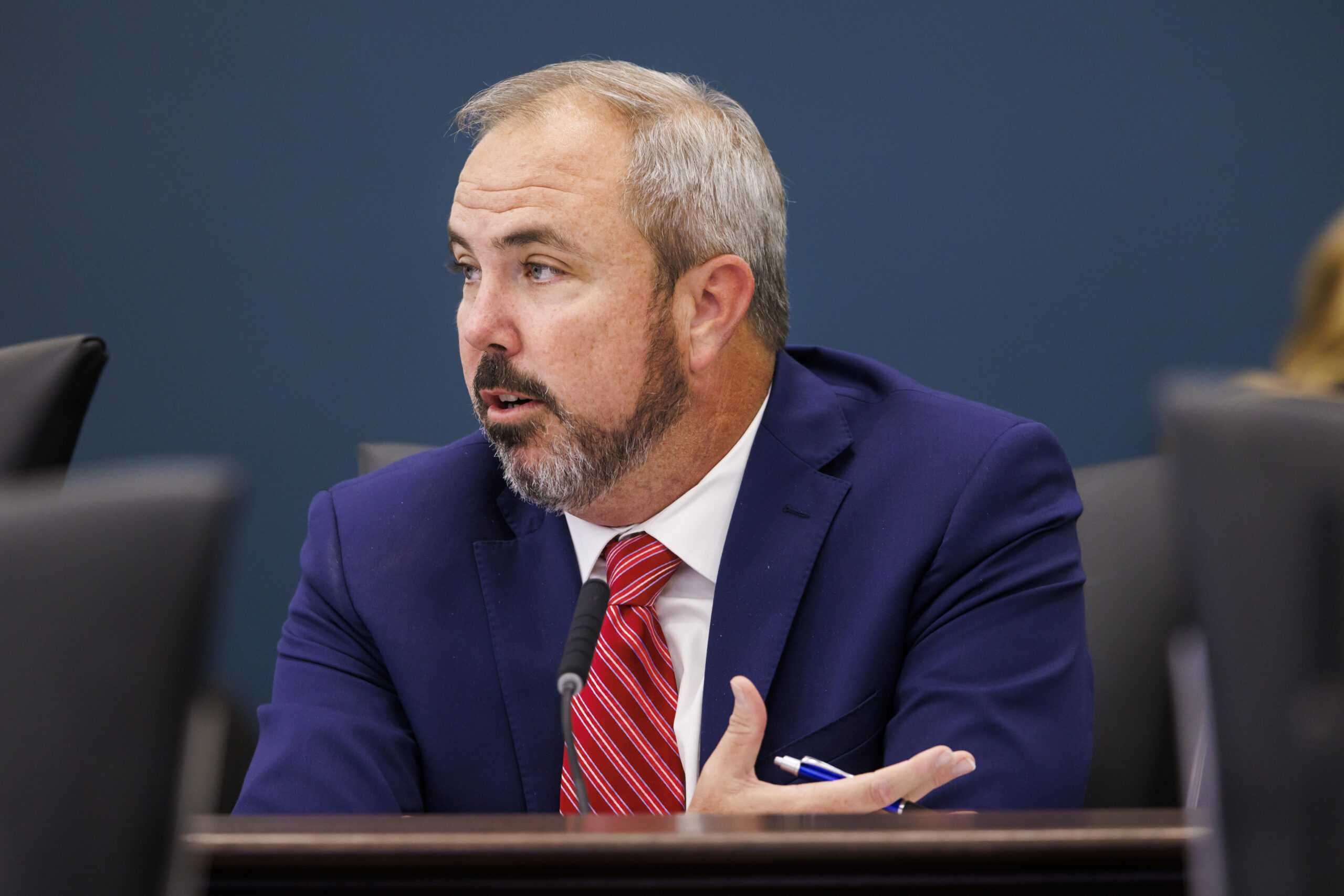Last Call – A prime-time read of what’s going down in Florida politics.
We do it every year, and we’re sorry for it, but we forgot to wish our friend, former Sen. Jeff Brandes, a happy birthday in this morning’s edition of Sunburn. We’ll try to not forget next year!
First Shot
The Senate has moved a step closer to passing a new bill that is a compromise between Gov. Ron DeSantis and the Legislature over who gets the power to oversee the state’s immigration efforts.
The Senate Appropriations Committee passed a bill (SB 2C) sponsored by Sen. Joe Gruters that would establish a board to oversee Florida’s immigration efforts and increase penalties for crimes committed by undocumented immigrants.
Democrats spoke fiercely against another provision in the measure that would eliminate in-state tuition rates for the 6,500 undocumented immigrants currently attending Florida’s public colleges and universities.
Last month, the Legislature passed the TRUMP Act naming Agriculture Commissioner Wilton Simpson as the state’s immigration enforcement chief, taking that power from DeSantis.
Lawmakers and DeSantis clashed over who should be the leader working with the federal government to stop illegal immigration. The Governor vowed to veto the bill.
The Legislature went back into Special Session this week for the third time, with Gruters’ bill proposing that no single official would have the role. Instead, DeSantis, Simpson, the Attorney General, the Chief Financial Officer and handpicked county Sheriffs and Police Chiefs would share those responsibilities and be required to make decisions unanimously as a council.
During Wednesday’s hearing, Democrats raised concerns that undocumented students known as Dreamers could see tuition tripled or quadrupled to out-of-state rates, potentially forcing them to drop out of school.
Read more on Florida Politics.
Evening Reads
—”How Mexico’s leader is writing the playbook for handling Donald Trump” via Santiago Pérez, José de Córdoba and Vipal Monga of The Wall Street Journal
—”Republicans love Trump’s spending cuts. Just not in their states.” via Maya C. Miller and Catie Edmondson of The New York Times
—”Trump’s shocking purge of public health data, explained” via Dylan Scott of Vox
—”The government waste DOGE should be cutting” via Stephen Macekura of The Atlantic
—”How RFK Jr., once a long shot, arrived at the precipice of Trump’s Cabinet” via Dan Diamond of The Washington Post
—”Ron DeSantis was able to fly migrants anywhere in the country. Now he’ll need permission.” via Ana Ceballos of the Miami Herald/Tampa Bay Times
—”Florida’s supercharged voucher program sends millions to wealthy families, pricy private schools” via Annie Martin, Leslie Postal and Scott Travis of the Orlando Sentinel/South Florida Sun-Sentinel
—”Are mass deportations Christian? Florida leaders contemplate the question.” via Kirby Wilson of the Tampa Bay Times
—“Scientists detect a mysterious messenger from the cosmos” via Carolyn Y. Johnson of The Washington Post
—”How the Village People went from ‘Y.M.C.A.’ to MAGA” via David Browne of Rolling Stone
Quote of the Day
“The President is tired of the drip, drip, drip; he wants people out.”
— Secretary of State Marco Rubio, telling Hamas to speed up hostage releases.
Put it on the Tab
Look to your left, then look to your right. If you see one of these people at your happy hour haunt, flag down the bartender and put one of these on your tab. Recipes included, just in case the Cocktail Codex fell into the well.
The Governor is working up a thirst protecting petroleum-powered vessels. Help him cool down with something frozen — preferably prepared in a TailGator 2.25 HP gas-powered blender.
DeSantis says his COVID-era policies are to thank after another record year for tourism, but we’re still recommending an Orange Crush for the VISIT FLORIDA team.
Florida TaxWatch gets a Make It Count for reminding policymakers that it’s never too early to prep for the Census.

Breakthrough Insights

Tune In
Noles trying to move up ACC standings
Florida State will try to improve its standing in the Atlantic Coast Conference when it plays Wake Forest tonight (7 p.m. ET, ESPNU).
The Seminoles (14-9, 5-7 ACC) sit in ninth place in the ACC standings after snapping a four-game losing streak last week in a 67-60 victory over Notre Dame. Jamir Watkins led FSU with 21 points while Malique Ewin added 18 points and 10 rebounds in the victory.
With eight games remaining in the regular season, Florida State must finish strong to avoid playing on the first day of the ACC tournament. Teams seeded 10 through 15 would have a much longer road to winning the conference tournament and earning an automatic bid to the NCAA Tournament, likely the only chance for the Noles to play in March Madness.
Wake Forest (18-6, 10-3) is tied for fourth in the conference standings, thanks to a three-game winning streak. The game is important for the Demon Deacons, as the top four seeds in the conference receive first—and second-round byes in the postseason tournament.
Tonight’s game is the only scheduled meeting between the Seminoles and Demon Deacons this season.
___
Last Call is published by Peter Schorsch, assembled and edited by Phil Ammann and Drew Wilson, with contributions from the staff of Florida Politics.
Post Views: 0

 Entertainment8 years ago
Entertainment8 years ago
 Entertainment8 years ago
Entertainment8 years ago
 Politics8 years ago
Politics8 years ago
 Tech8 years ago
Tech8 years ago
 Tech8 years ago
Tech8 years ago
 Tech8 years ago
Tech8 years ago
 Politics8 years ago
Politics8 years ago
 Tech8 years ago
Tech8 years ago











